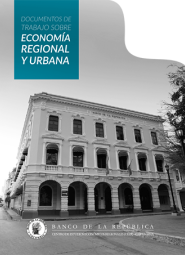Minutes for Banco de la República's Board of Directors Meeting on July 29, 2022
The decision was based on the following considerations:
- Various inflation indicators continued to rise. Total annual inflation moved from 9.1% in May to 9.7% in June, while core inflation excluding food and regulated items increased from 5.9% to 6.1% in the same period. Upward pressure on prices was heightened by the increase in excess demand, the effects of indexation, exchange rate pressures and the persistence of international cost shocks. The rise in core inflation indicators confirmed a significant diffusion of price increases.
- Inflation expectations maintained an upward trend, especially those from surveys, whereas those drawn from the public debt markets were characterized by high volatility, while all continue above the 3% target. The Banco de la República's monthly survey of analyst expectations found that, between June and July, expected inflation for 2022 increased from 8.6% to 9.2%, and for 2023 from 4.7% to 5.2%, according to the sample median.
- Economic activity continued to exhibit a strong dynamism during the second quarter driven by growth in domestic demand, especially private consumption. On this framework, the technical staff revised upwards the growth forecast for 2022 from 6.3% to 6.9%, which suggests an output level that would continue to surpass the productive capacity of the economy for the remainder of 2022.
- June showed a sustained year-to-year employment growth reflected in both national employment (9.7%) and that in the 13 main cities (8.6%). As a result, the unemployment rate fell year-on-year in the national aggregate (-3.4pp) and the 13 main cities (-4.5pp), reaching 11.3% and 11.7%, respectively.
- World inflation continues rising and has become more persistent, contributing to increases in the monetary policy interest rates of developed markets, as has been the recent case of the U.S. Federal Reserve, the European Central Bank and the Bank of England. In this scenario, fears of a global recession have generated large volatility in financial markets and a decrease in some commodity prices such as oil and copper.
Based on these considerations, all members of the BDBR agreed on the need to continue the monetary policy adjustment process that ensures a return to the 3% annual inflation target within a setting of an economy that continues to grow at a good pace amid the intensifying inflationary pressures. Six board members were in favor of a 150-basis point increase and one in favor of a 100-point increase.
The six board members considered that the 150-point increase of the monetary policy rate, which replicates that carried out in June, adequately moves towards the level required for the inflation rate to converge in the medium term towards its annual 3.0% target. This will make it possible to temper the pace of future additional increases in the monetary policy interest rate to try to minimize the short-term costs on economic growth that the convergence process of inflation towards the target may have. These board members referred to various reasons to support their decision: escalations in international interest rates and risk premiums encourage an increase in the neutral interest rate; variations over the last 13 weeks of the annualized loan portfolio exceed 22%, which supports a demand increase that exceeds that of supply and translates into a current account deficit which remains high and increases risk premiums; inflation expectations remain high for the medium term and, in the short term, risks of inflationary pressures in items such as rents and public services are perceived. Additionally, the growth trend and its upward revision sustain a positive output gap that, along with the labor market improvement, suggests that demand pressures on prices will continue during the remainder of the year. Finally, they noted that core inflation excluding foods and regulated items has continued to rise and currently exceeds 6.0%, which reflects a greater inflation diffusion among all the components of the CPI basket.
The board member who voted for a 100 b.p. increase expressed doubts about the capacity of neo-Keynesian models such as the one applied by the technical staff, which - although useful in the past environment of economic stability - ceased to be reliable to adequately reflect the current reality after the strong structural shocks to the productive apparatus caused by the pandemic and the subsequent exogenous supply shocks. The board member also expressed concern regarding a macroeconomic consistency issue wherein the public sector increases aggregate demand, expands the external deficit and tends to crowd out the private sector due to its pandemic-derived high fiscal deficit. Likewise, within the private sector, the member pointed out that companies have over-adjusted, thus generating savings, while households have under-adjusted, continuing with excess spending and dissaving. Under these circumstances, the board member argues that sharp interest rate increases do not necessarily ensure that the macroeconomic balance will be restored, and rather tend to be contractionary. Additionally, the member noted that several indicators already show moderation in credit dynamics and other key variables, suggesting that a drastic adjustment of the interest rate may be more harmful than beneficial.
The BDBR stated that through this decision it continues with the monetary policy adjustment process that ensures the return to the 3% inflation target in the medium term. The Board will continue to closely monitor all economic indicators and make decisions it deems necessary, based on new information available.




















































